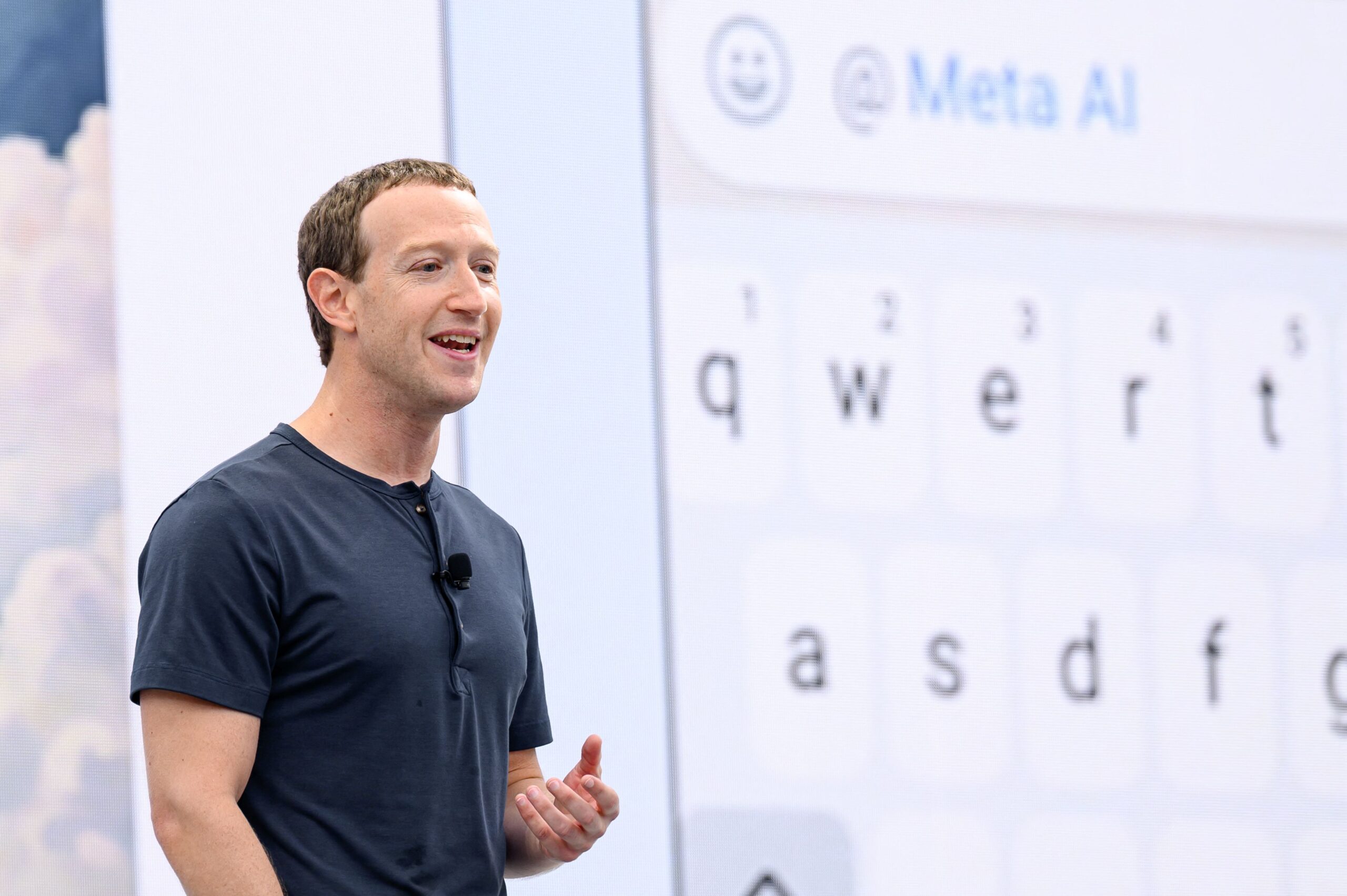
Meta Platforms, Inc. (formerly known as Facebook) has demonstrated a robust financial performance in the fourth quarter, surpassing analysts’ expectations and signaling a strong rebound. CEO Mark Zuckerberg’s strategic focus on efficiency and selective investment, particularly in its commitment to artificial intelligence (AI) and a lean operational model has positioned the company for sustained growth amidst a rapidly evolving digital landscape.
Earnings Overview and Financial Health
Meta’s fourth-quarter earnings report was a beacon of positive news for investors and industry observers alike. The company not only beat earnings and revenue expectations but also announced its first-ever dividend payment, a testament to its solid financial standing and confidence in future growth prospects. Here’s a snapshot of the key financial metrics:
- Earnings Per Share (EPS): $5.33, surpassing the $4.96 expected by analysts from LSEG, formerly known as Refinitiv.
- Revenue: Achieved $40.1 billion, against the $39.18 billion forecast, marking a 25% increase year over year, by LSEG
- Net Income: More than tripled to $14 billion from $4.65 billion in the same quarter last year.
- Operating Margin: More than doubled to 41%, indicating effective cost-cutting measures and operational efficiencies.
In addition, Meta’s user engagement metrics continued to show positive trends, with daily active users (DAUs) reaching 2.11 billion and monthly active users (MAUs) at 3.07 billion. These figures not only surpass analyst expectations but also highlight the company’s unparalleled reach and influence across the globe. Average revenue per user (ARPU) also exceeded forecasts, coming in at $13.12, further evidence of Meta’s ability to monetize its extensive user base effectively.
| Metric | Q4 Results | Analysts’ Expectation |
|---|---|---|
| EPS | $5.33 | $4.96 |
| Revenue | $40.1B | $39.18B |
| DAUs | 2.11B | 2.08B |
| MAUs | 3.07B | 3.06B |
| ARPU | $13.12 | $12.81 |
| Net Income | $14B | – |
| Operating Margin | 41% | – |
Meta also delighted investors with the announcement of its first-ever dividend payment of 50 cents per share, alongside a $50 billion share buyback program, underscoring its strong financial health and confidence in its future.
Driving Growth Through Efficiency and AI Innovations
Under Zuckerberg’s leadership, Meta has embraced a “year of efficiency,” a strategy that has not only streamlined operations but also significantly boosted investor confidence. The approach involves rigorous cost control, minimal new hiring, and a focus on high-impact investments, particularly in artificial intelligence (AI) and infrastructure. This strategic pivot comes after Meta faced challenges in the digital ad market and the effects of regulatory changes, notably Apple’s iOS update.
- Cost Management: Meta reported an 8% decrease in expenses year over year, demonstrating the effectiveness of its cost-cutting measures.
- Lean Workforce: The company’s headcount was reduced by 22% to 67,317, aligning with Zuckerberg’s vision to keep operations lean without compromising on execution or growth potential.
- Investment in AI: A significant portion of Meta’s investment is directed towards building a world-class compute infrastructure, including the acquisition of advanced AI chips from Nvidia, essential for training Meta’s AI models.
Reducing headcount has not only been about reducing numbers; it has been about making Meta a more agile and focused entity, capable of navigating the rapidly evolving digital landscape with greater ease and effectiveness.
Investors have warmly received Zuckerberg’s emphasis on operational efficiency, as evidenced by the stock’s near tripling in value last year. This performance made Meta one of the S&P 500’s top performers, a clear indication of the market’s approval of the company’s strategic direction.
Forward-Looking Investments and the Metaverse
Zuckerberg has also outlined plans to invest heavily in building world-class compute infrastructure, essential for training sophisticated AI models. This includes billions of dollars spent on Nvidia’s AI chips, which are crucial for developing advanced AI capabilities. Meta’s focus on AI is not just about maintaining its competitive edge in the advertising market, where it already outpaces rivals like Google, but also about laying the groundwork for future innovations that can drive growth in new directions.
Meta continues to invest heavily in future technologies, particularly in the metaverse through its Reality Labs unit. Although this division reported substantial losses, Meta views these investments as critical to its long-term strategy of shaping the future of digital interaction and commerce.
- Reality Labs Performance: Despite a record operating loss of $4.65 billion in the fourth quarter, the unit’s revenue exceeded $1 billion for the first time, driven primarily by Quest VR headsets.
- Future Commitments: Meta anticipates that expenses related to Reality Labs will continue to increase, underscoring the company’s commitment to leading in the development of virtual and augmented reality technologies.
Despite its financial success and strategic positioning, Meta continues to face scrutiny over social media’s impact on child safety and mental health. Zuckerberg, along with executives from other leading social media platforms, was questioned by lawmakers regarding the measures taken to protect users, especially children, from exploitation and harm. This ongoing scrutiny reflects the broader challenges facing tech giants in balancing growth and innovation with social responsibility and user safety.
Meta’s fourth-quarter earnings highlight a company in robust financial health, confidently navigating the complexities of the digital economy. By prioritizing efficiency, strategic investment in AI, and long-term initiatives like the metaverse, Meta is not only addressing current market challenges but also laying the groundwork for future innovation and growth. As the company moves forward, it remains committed to balancing operational efficiency with investments in key technologies, positioning itself as a leader in the evolving digital landscape.
Featured Image courtesy of JOSH EDELSON/AFP via Getty Images
